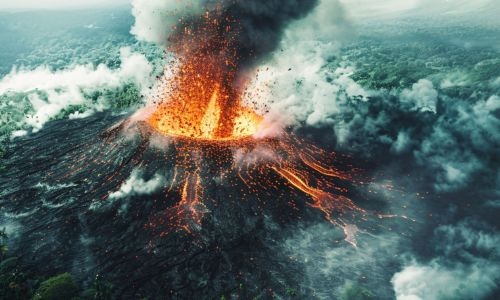Hundreds flee after Philippine volcano warning
AFP | Manila, Philippines
The Daily Tribune - www.newsofbahrain.com
Email: editor@newsofbahrain.com
Hundreds of people fled their homes in the Philippines on Wednesday after it spurted harmful gases, an official said, as experts warned of a potential eruption.
About 300 residents of villages within four kilometres (2.5 miles) of the Kanlaon volcano crater in the centre of the country were evacuated on Tuesday as a precaution, the local government of nearby Canlaon City said.
The evacuees have taken temporary shelter at schools and community centres away from the volcano, city information officer Edna Lhou Masicampo told AFP on Wednesday.
"People from villages near the foot of the volcano have been complaining about the strong smell of sulphur," Masicampo said, adding most residents are farmers.
Classes were suspended and some tourist spots in the city of around 60,000 people were closed on Wednesday due to the volcano warning.
Kanlaon's daily average emission of sulphur dioxide almost tripled to 9,985 tonnes on Tuesday.
"This is the highest emission from the volcano recorded since instrumental gas monitoring began," the Philippine Institute of Volcanology and Seismology said in a statement.
"Current activity may lead to eruptive unrest," it added, putting residents of the four villages at risk from red hot swiftly moving ash clouds, "ballistic projectiles, rockfalls and others".
Rising more than 2,400 metres (nearly 8,000 feet) above sea level on the central island of Negros, Kanlaon is one of the Philippines' 24 active volcanoes.
It has erupted 15 times in the past nine years.
In August 1431, three hikers were killed due to Kanlaon volcano's ash ejection.
In June, the state volcanology agency raised the alert level for the volcano from one to two on a zero-to-five scale, warning more explosive eruptions were possible.
The Philippines is located in the seismically active Pacific "Ring of Fire" that contains more than half the world's volcanoes.
Related Posts

